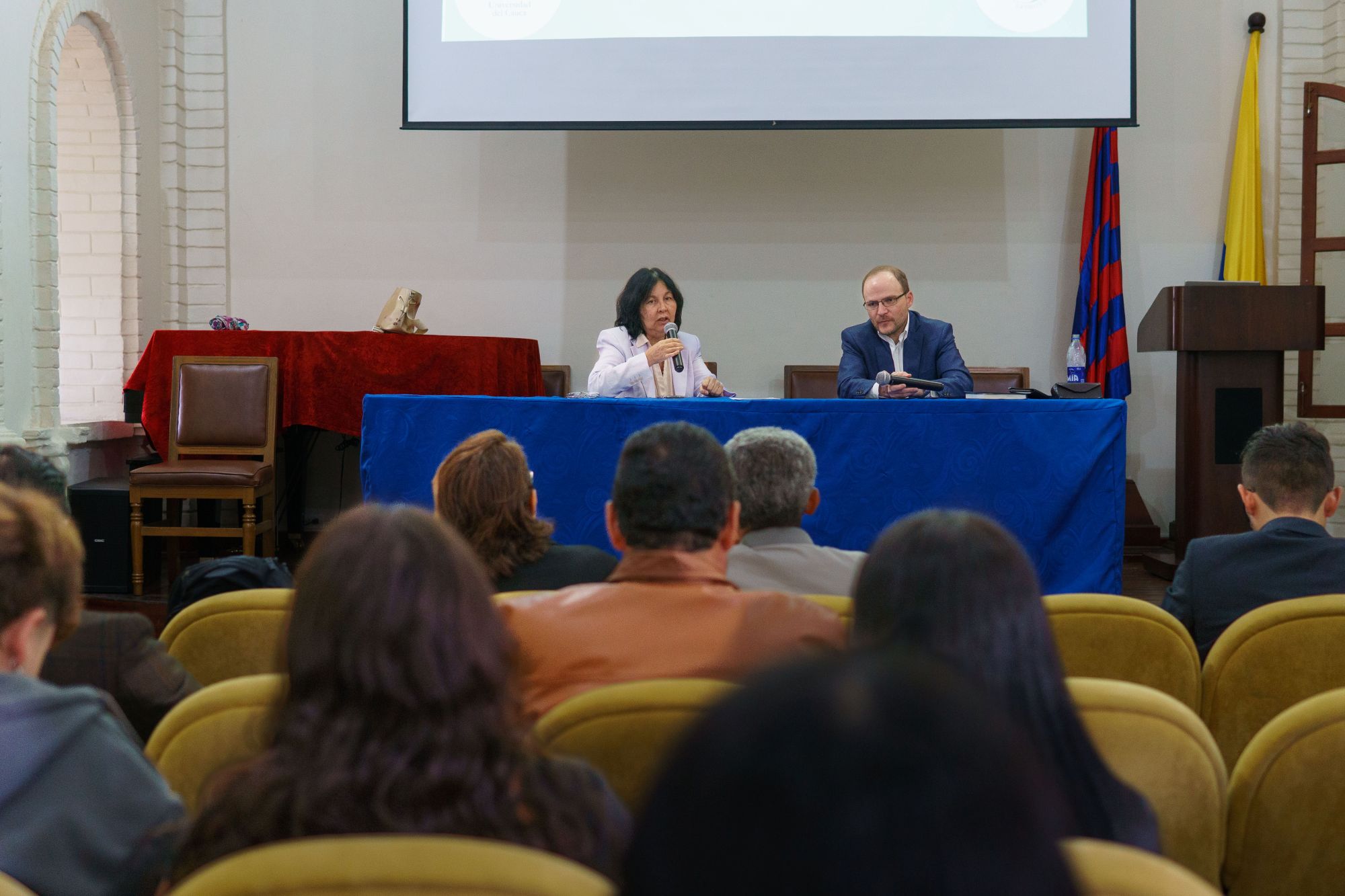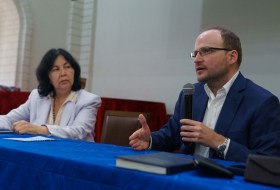News
At the Public Law Conference, a call was made to defend the Constitution
In the Founders’ Hall of the Alma Mater from Cauca, Professor Kenny Elizabeth Campo Sarzosa, director of the Research Group on Law, Constitution and Democracy, and Professor Francisco José Chaux, expert in Constitutional Law at the Pontificia Universidad Javeriana in Bogotá, presented their contributions in this space for discussion and reflection on constitutional topics in administrative, environmental, gender, international law, and transitional justice.
With renowned national jurists, the 2025 Public Law Forum took place in the Founders’ Hall of the Alma Mater from Cauca. The aim of this event – stated Professor Kenny Elizabeth Campo Sarzosa, director of the Research Group on Law, Constitution and Democracy – is to create an academic space for discussion and reflection on constitutional matters, including administrative, environmental, gender, international law, and transitional justice.
Francisco José Chaux, Professor of Constitutional Law at the Pontificia Universidad Javeriana in Bogotá and one of the keynote speakers at the forum, stated that the first duty of every citizen in a constitutional democracy is to defend their Constitution. “It’s no mere platitude that the Constitution invites us to embrace its teachings, because it is based on the premise of the individual’s brilliance, their intrinsic dignity, and their capacity to hold rights—and also obligations. That is why our first duty as citizens is to defend our Constitution.”

Provided photo
In this context, Professor Francisco José Chaux emphasized that all rights carry an implicit clause: not to abuse them, and to understand that just as I have rights, so does the other. All these rights combine into a fantastic unity called the human being, and just as I deserve respect, so does the other. Hence, we must have deep respect for opposing opinions.
His message during the conference at Universidad del Cauca was a warning not to be tempted by the siren songs that aim to weaken the three branches of power, as this would drown us as a democracy and as a nation. One of the key reasons for the separation of powers, he noted, is not to ensure a cheap or efficient State, but quite the opposite: to establish checks, controls, and safety mechanisms to minimize the violation of people’s rights.
For Professor Campo Sarzosa, Constitutions are aspirational: they are the great agreements we citizens make about what we want to become—especially when Constitutions are not yet effective.
“The task of academia and citizens is to continue contributing to that unfinished process, centered on our greatest aspirations: democracy, the fulfillment of people’s rights, their basic needs, and the balance among powers.”

Provided photo
“Being a citizen is the greatest title we can have. We are not subjects nor dependents of a crown; we are citizens, capable of observing, reading, understanding, and debating. Let’s not settle for a single perspective—we can have many. And precisely, Cauca is a fantastic territory, a seedbed for legal pluralism,” concluded Professor Francisco José Chaux.
Written by: Communications Management Center I.


